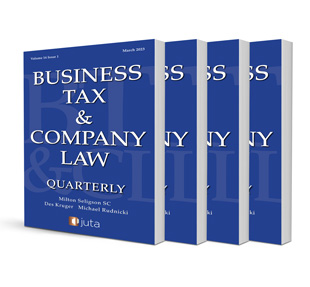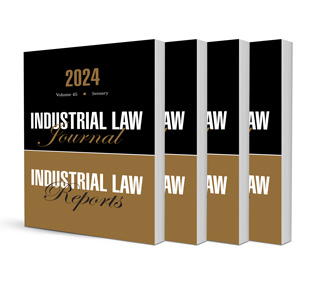VAT, Indemnity Payments and Capitec Bank: The Good, the Bad and the Ugly (Part 2)

VAT, Indemnity Payments and Capitec Bank: The Good, the Bad and the Ugly (Part 2)
Author: Des Kruger
ISSN: 2219-1585
Affiliations: Independent Consultant
Source: Business Tax & Company Law Quarterly, Volume 15 Issue 3, 2024, p. 23 – 30
Abstract
In the previous edition of this journal, the writer dealt with the substantive issue that was required to be addressed by the Constitutional Court in Capitec Bank Ltd v Commissioner for the South African Revenue Service, namely whether Capitec Bank Ltd was entitled to claim a deduction under section 16(3)(c) of the Value-Added Tax Act, 1991, in respect of amounts credited to borrowers accounts under a loan cover arrangement on the happening of specified events, namely the death or retrenchment of the borrower. Capitec had essentially undertaken to apply the claim proceeds derived by it under a credit life policy entered into with an insurer against the indebtedness of the borrower on his or her death or retrenchment. No consideration was payable for the loan cover by Capitec. This Part of the article address the remaining issues dealt with in this seminal case, namely apportionment, capitalisation and supplies for no consideration. It is, with respect, submitted that the court addressed these related issues succinctly and appropriately. As regards apportionment, the court held that while section 16(3)(c) did not deal specifically with apportionment, it would in essence be fair and reasonable to do so given that the loan cover related to the bank’s taxable and exempt activities. As noted by the writer, the court’s dicta is apposite as regards supplies that fall to be dealt with under section 8(15). Section 8(15) provides that where a single supply of goods or services would, if separate considerations had been payable, been standard rated and zero rated, each part of the single supply is deemed to be a separate supply. However, there are no rules as to how the consideration related to each notional separate supply is to be determined. Rogers J in Capitec Bank provides a practical answer — apportionment under general principals. As regards capitalisation, Rogers J held that the components of the borrowers’ accounts retain their character of interest (exempt) and fees (taxable) and fell to be dealt as such for VAT purposes. While the writer acknowledges the correctness of the analysis and conclusion arrived at by the court, he notes that this approach gives rise to issues where a trust makes distributions to a beneficiary after many years out of capitalised trust capital and is required to apply Binding General Ruiling No 16 (‘BGR 16’) in relation to that distribution. BGR 16 provides for a mandatory apportionment methodology, the so-called turnover-based method. The writer suggest this is something that needs to be considered by SARS. The final issue relates to supplies made for no consideration. The court confirmed that a supply for no consideration does not per se mean that the underlying supply is not an ‘enterprise’ (taxable) supply in every circumstance. Rather, it must be considered to what extent the free supply is a part of the enterprise (taxable) activities carried on by the vendor. Where for example, a vendor gives a free giveaway to encourage the purchase of the vendor’s wares, the supply of the giveaways for no consideration is still in the course or furtherance of the vendor’s enterprise, albeit for nil consideration (section 10(23)). In the context of the Capitec Bank case, the court had accepted that the supply of the loan cover related to both taxable and non-taxable supplies.
